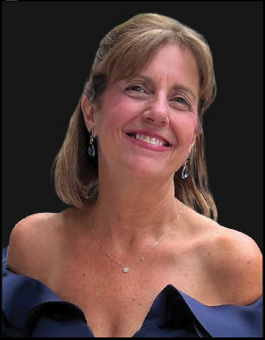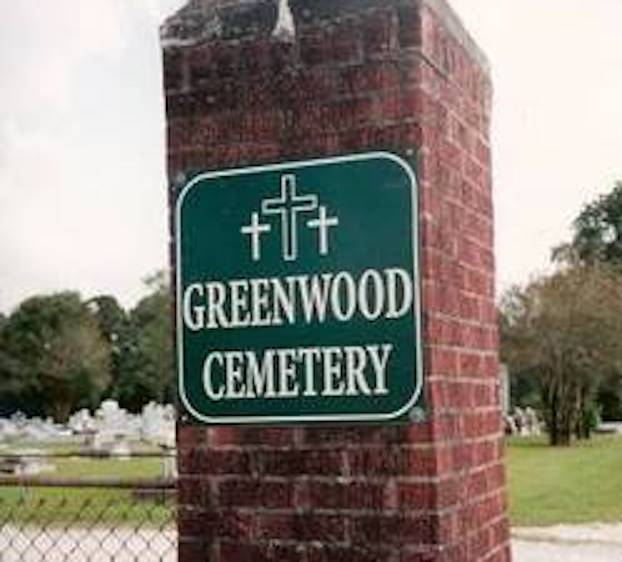A lifelong athlete: Jan Cole-Outlaw to be inducted into LHSAA Hall of Fame
Published 9:32 am Saturday, April 15, 2023

- Jan Cole-Outlaw, far left, jump up to block an opponent's shot in a game. (Special to the American Press)
Jan Cole-Outlaw plays to win.
That competitive spirit helped her star on the basketball court, first at Ragley High, then at South Beauregard after the merger of Ragley and Longville. The first South Beauregard team went 54-0 to win the 1971 Class B state championship, with Cole averaging 38 points and 21 rebounds per game.
She later became the first head coach of the McNeese State women’s basketball team.
Trending
Cole-Outlaw will be inducted into the Louisiana High School Athletic Association Hall of Fame Tuesday night in Baton Rouge.
Cole-Outlaw said sports were always a part of her life.
“When you live in the country, you don’t have a lot of options when you’re young,” she said. “We played outside, rode horses, played sports with the boys. I don’t remember a time when I didn’t play sports. I had natural athletic ability so whatever sport we played wasn’t difficult to learn. And I practiced a lot, whether it was golf, basketball, softball or baseball. I worked hard to develop my ability. In high school, I did track and basketball. In the summer we played softball.”
The competitiveness of basketball made it Cole-Outlaw’s favorite sport. The desire to be the best was apparent in every aspect of her life.
“I approach whatever I’m doing with the same attitude, it just carries over from one sport to another,” she said.
“It’s the same outside of sports. People that know me, the first thing they would say about me is that I’m competitive. Maybe too competitive. In school, I wanted to have the best grades. It didn’t matter to me what grade I got, but I wanted to know that I did better than everyone else. I was valedictorian. That got me points with my parents so it was OK. It’s hard for someone who is ultra competitive to turn that on and off. I don’t mean for it to happen, it just does.”
Trending
In her last year of high school, Cole-Outlaw had to adjust to a new situation due to the merger.
“Longville was our biggest rival in the area,” she said. “The fact that we had that phenomenal year after we were thrown together, when the kids did not want to be put together, is almost unbelievable. We had a good team at Ragley, we had been to semifinals the year before. We thought we would be that good again or better. We added a couple of girls from Longville that were good.
“There wasn’t any friction. Our principal, Kenneth Stratton, who had been at Longville, and our coach, LaRue Cooley, who had been at Ragley, had a good relationship. That spilled over to us. We had a few practices in the summer and for some reason we all gelled and started working in the right direction. We realized we could be good and just accepted it. Once we started working it became a cohesive group. We didn’t have any fights or arguments. I loved playing for Coach Cooley and with all of my teammates. They were all very talented players that contributed to our record-breaking season.”
Cole-Outlaw said looking back on that year makes her realize how many people were instrumental in the team’s success.
“That year, everyone contributed 100 percent,” she said. “We could not have done what we did if anyone had decided they were done with it and didn’t want to do it. Coach LaRue had us prepared for every game. He was regimented and organized. We had a great vice principal, Bruce Brown, one of my favorite teachers. Our guidance counselor, Julius Miller, was also our bus driver and clock operator. Sally Smith was a great teacher. Rita Brown, the mother of my best friend, still supports me. The teachers, fans, parents – everyone worked towards making that happen.
“We had the two best team managers – Connie Buford and Debbie O’Dell – anyone could have. They got no credit and had to be there just as much time as we did, every practice, every game. We got recognition and trophies, they didn’t. When you look back, you realize this. You never thought about it when you were going through it. Those are the people that contributed greatly. We did what we were doing because we loved it. They did it because they were trying to help us. If they hadn’t helped us, we couldn’t have done it. Everything had to work together.”
The season was capped with a win over Plainview in the state championship game.
“I scored 37 points and missed three shots, two field goals and one free throw,” Cole-Outlaw said. “I had to shoot a lot from the outside because of the defense. For some reason, I wasn’t nervous or frustrated. I felt at ease even though it was my last game and I had been emotional about that before the game. It wasn’t stressful like some other games earlier in the year. It was the most enjoyable for me personally.”
Opponents did not find facing Cole-Outlaw enjoyable.
“I was rough, competitive, maybe a tad intimidating at times,” she said. “I wasn’t afraid of anybody. I never thought anyone could beat me. In the games I didn’t play well, I always thought it was on me, not that anyone had stopped me.”
Cole-Outlaw said she still shows no mercy.
“I don’t ever want to lose,” she said. “When I play my grandkids in things, I don’t let them win. I maybe don’t play as hard, but I want to win.”
After high school, Cole-Outlaw turned down offers to play college basketball.
“At the time, they didn’t have a lot of scholarships for women in the South,” she said. “I had a few offers from up north, but my dad really didn’t want me to go so far from home and we were a close-knit family, so I didn’t. I played a lot of AAU ball, flying to Kansas and different places. I went to school at McNeese.”
Cole-Outlaw’s play on the AAU circuit earned her a chance to play on the national team.
“In 1973, I was chosen for the World University Games team that was going to play in Russia,” she said. “They had seen me in AAU, all of the other players were in college ball. It was different, in high school I had always been one of the taller players. On this team, I was one of the smallest players and had to play a new position. It was very cutthroat. Pat Summitt was on the team. People that thought she was competitive as a coach should have seen her as a player.
There was Teresa Shank from Immaculata, who was called the Bill Walton of the East. We had Marsha Mann, Summit, Nancy Dunkle from UCLA who could dunk the ball.
“It was a different experience. I didn’t enjoy it as much since I didn’t know any of the other players. I went to training but hurt my ankle, then had blood clots and couldn’t go to Russia.”
Cole-Outlaw returned to the court in recent years.
“My best friend, Janet Brown Futch and I, started granny basketball last year,” she said. “We played a national tournament in Kansas City. It is more competitive than you think. I tore my knee up playing. I had played 50 years with no problems before that. We are going to get a team going with people from the Ragley/Longville area.”
The injury has not dampened Cole-Outlaw’s spirit.
“The day I die, I’ll probably be fighting to get on some team,” she said. “I can’t approach anything and not be competitive. I can’t help it, it’s just who I am. I’m never going to change. I went to Ohio to get knee surgery from the Ohio State team doctor, thinking he could fix my knee so that I could get back. He says I need to have a replacement but I don’t want to do that because it ends everything. I’m looking for a doctor that can work it out so I can do something. I’m not giving up.”
Cole-Outlaw said sports provided a lot of life lessons.
“I’ve not had to deal with a lot of defeat in sports, but there have been times when things didn’t go my way,” she said.
“When I was a younger player, it took me a while to learn to control myself. If someone would foul me or got rough, I might decide to deck them, put them on the floor. You learn self-control, discipline, you learn that you have to work with people whether you like them or not. There are a lot of positive things about sports.”





